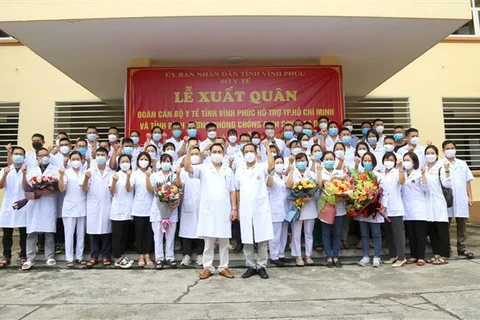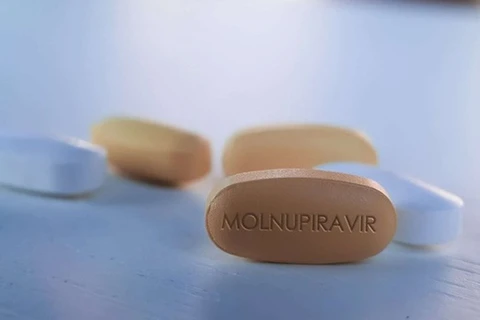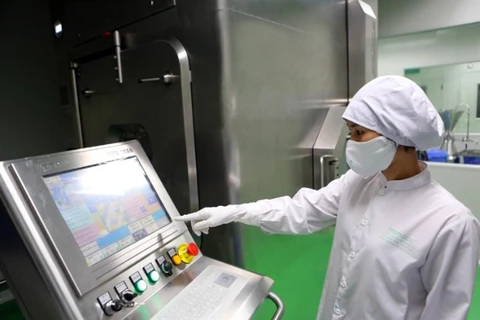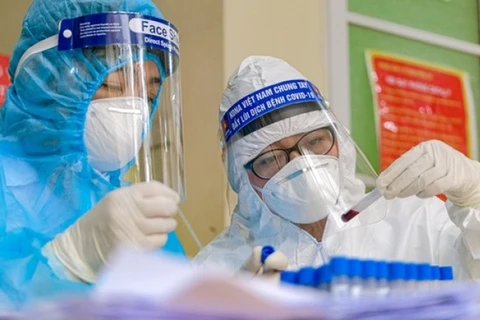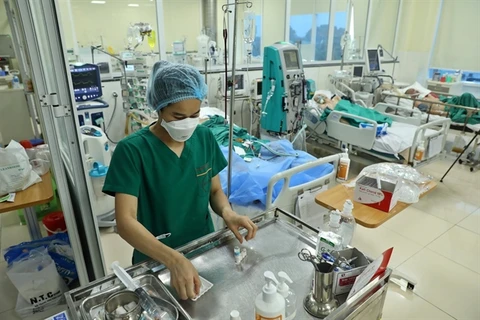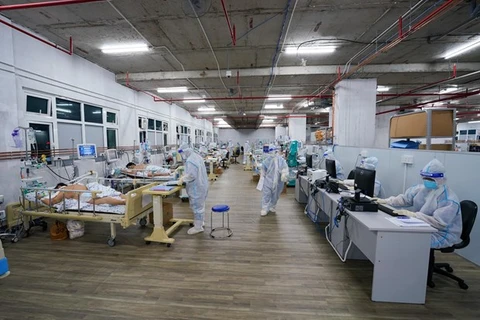Hanoi (VNA) - Prime Minister Pham Minh Chinh has demanded Acting Minister of Health Dao Hong Lan to consult with experts on solutions to handle the current shortages of medicines and medical supplies, thus giving appropriate and timely directions for this issue at medical examination and treatment facilities.
According to Document No. 514/VPCP-KGVX dated August 24, 2022, PM Chinh requested the Acting Minister of Health to carefully assess recommendations of experts in order to direct the implementation of proper solutions.
Previously, the Government Portal hosted a seminar on measure to address the shortages of medicines and medical supplies, during which participants pointed out causes of the shortages of medicines and medical supplies, and proposed solutions to the issue.
They underlined the need to assess the extent and situation of drug shortages at all levels from central health establishments to local facilities, and determine the cause of medicine shortages at each unit.
A number of contents related to medicine prices in the Pharmacy Law, and provisions of the Law on Bidding need to be considered, they said.
The Ministry of Health was reminded to urgently amend and soon issue circulars related to bidding instructions, drug registration and prices; and guidelines for procurement of medical equipment, including medical supplies.
Issues under the authority of the MoH, the Ministry of Finance, and the Ministry of Planning and Investment, which remain stuck and affect relevant bidding activities, must be reviewed, participants said.
They also emphasised the necessity to improve the capacity and responsibility of agencies relating to the bidding work, strengthen the state governance at all levels, and promote the application of IT in this work.
According to Dao Khanh Tung, a representative from the UN Development Programme (UNDP) in Vietnam, the State can significantly save on drug costs in the way that UNDP has been supporting countries.
Specifically, every two years, UNDP will organise a global tender, then negotiate with manufacturers and suppliers of drugs and medical supplies around the world to help poor and developing countries access to the right supply of generic drugs, brand-name medicines and other medical goods at their right prices.
UNDP’s such support is to minimise the intermediary stages, and ensure transparency of the price, thus benefiting not only patients but also countries whose budgets are already tight, Tung said./.
According to Document No. 514/VPCP-KGVX dated August 24, 2022, PM Chinh requested the Acting Minister of Health to carefully assess recommendations of experts in order to direct the implementation of proper solutions.
Previously, the Government Portal hosted a seminar on measure to address the shortages of medicines and medical supplies, during which participants pointed out causes of the shortages of medicines and medical supplies, and proposed solutions to the issue.
They underlined the need to assess the extent and situation of drug shortages at all levels from central health establishments to local facilities, and determine the cause of medicine shortages at each unit.
A number of contents related to medicine prices in the Pharmacy Law, and provisions of the Law on Bidding need to be considered, they said.
The Ministry of Health was reminded to urgently amend and soon issue circulars related to bidding instructions, drug registration and prices; and guidelines for procurement of medical equipment, including medical supplies.
Issues under the authority of the MoH, the Ministry of Finance, and the Ministry of Planning and Investment, which remain stuck and affect relevant bidding activities, must be reviewed, participants said.
They also emphasised the necessity to improve the capacity and responsibility of agencies relating to the bidding work, strengthen the state governance at all levels, and promote the application of IT in this work.
According to Dao Khanh Tung, a representative from the UN Development Programme (UNDP) in Vietnam, the State can significantly save on drug costs in the way that UNDP has been supporting countries.
Specifically, every two years, UNDP will organise a global tender, then negotiate with manufacturers and suppliers of drugs and medical supplies around the world to help poor and developing countries access to the right supply of generic drugs, brand-name medicines and other medical goods at their right prices.
UNDP’s such support is to minimise the intermediary stages, and ensure transparency of the price, thus benefiting not only patients but also countries whose budgets are already tight, Tung said./.
VNA


